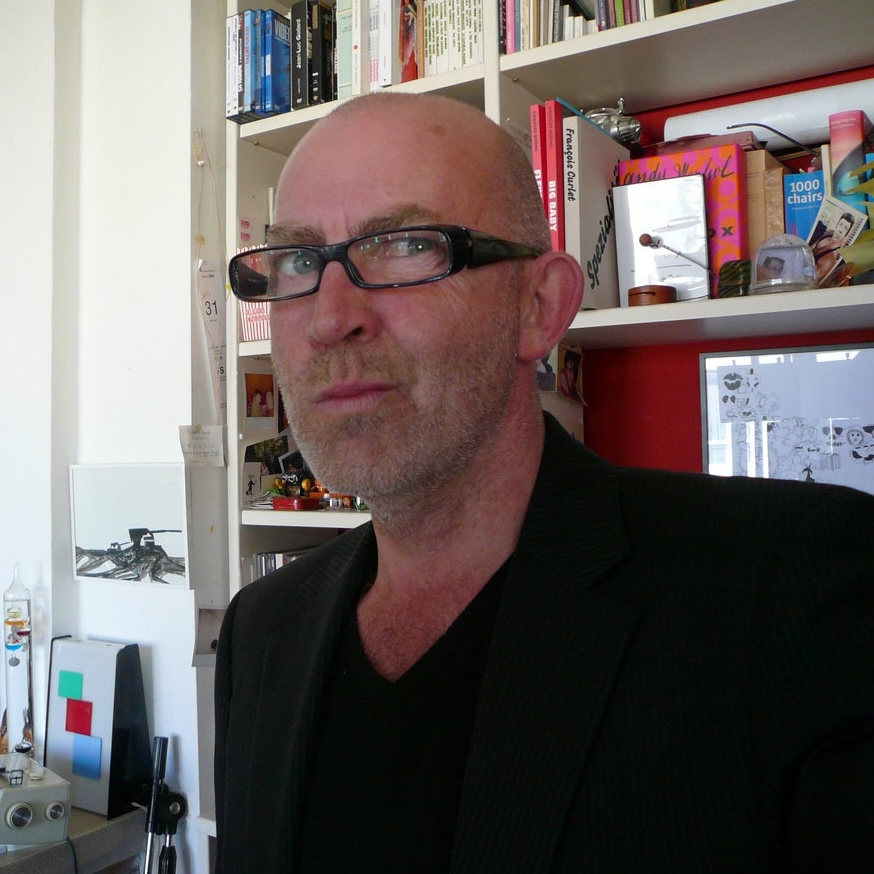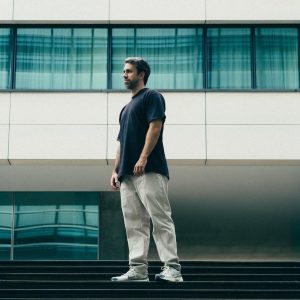Philippe Cam
I discovered Philippe Cam’s music while watching an interview of the French writer Jean-Yves Leloup. I was impressed by the elegance and beautiful sound design of his work, with few elements but perfectly modulated, creating a complex yet subtle hypnotic evolution. The tracks are danceable, but there is never a kick or percussion, which makes them very unique. Probably some of the best dub chords I’ve ever heard. (Philippe Cam – Rotterdam / Karine).
Max was also seduced by his music, and we considered inviting him even though his sound didn’t quite fit our usual club night. There wasn’t much information about him online, so it wasn’t easy to reach out. We eventually got in touch through Instagram and invited him to come from France to Berlin to play live.
In the meantime, we discovered the beautiful Genezareth Kirche and thought it would be the perfect place for him to perform. That’s how we naturally came to create this second segment of Lowpass, focusing on another side of electronic music.
Philippe Cam Biography
Philippe Cam is the Thomas Pynchon of the electronic music world. Little is known about him and only a couple of pictures have been put online since he emerged on this planet to write his first and only album18 years ago. We know he worked as a sailor and that’s it. If you dig deeper you might find out that he worked as a DJ in the beginning of the 90ies in Brussels and began to study electronic music there and also began to write music for theaters and ballets.
When his first album “Balance” (Traum CD3) was released on Traum the American distributor Forced Exposure once wrote that about him: „Philipe Cam is a star in his own field. He is among the few people who have succeeded to write hypnotic dance music without a conventional beat still conveying a thrilling, dramatic feel. Cam has developed an accurate, intense and complex formula of modulation-techno. Starting with music similar to Pan Sonic in 1996, his music turned towards a more elegant form of minimal music. Abstract soundtracks lead to an organic form of music, which was equally influenced by modern techno as Wolfgang Voigt’s Studio 1/Gas or Basic Channel/Maurizio. Cam’s music corresponds heavily to the Cologne scene, where his music is appreciated and played throughout the clubs by the likes of Michael Mayer, Tobias Thomas and various other DJs as well as experimental djs from the A-musik corner.“
We are releasing the album as a double clear vinyl with cover art by Yvette Klein who also designed the cover for his Philippe Cam’s album 18 years ago. Graphics for “Rotterdam” come from Cologne designer Daniela Thiel. We also would like to thank the cultural department of Cologne for supporting us to finance the album and to see the artistic value in this piece of minimalism.
Date
November 11, 2025



